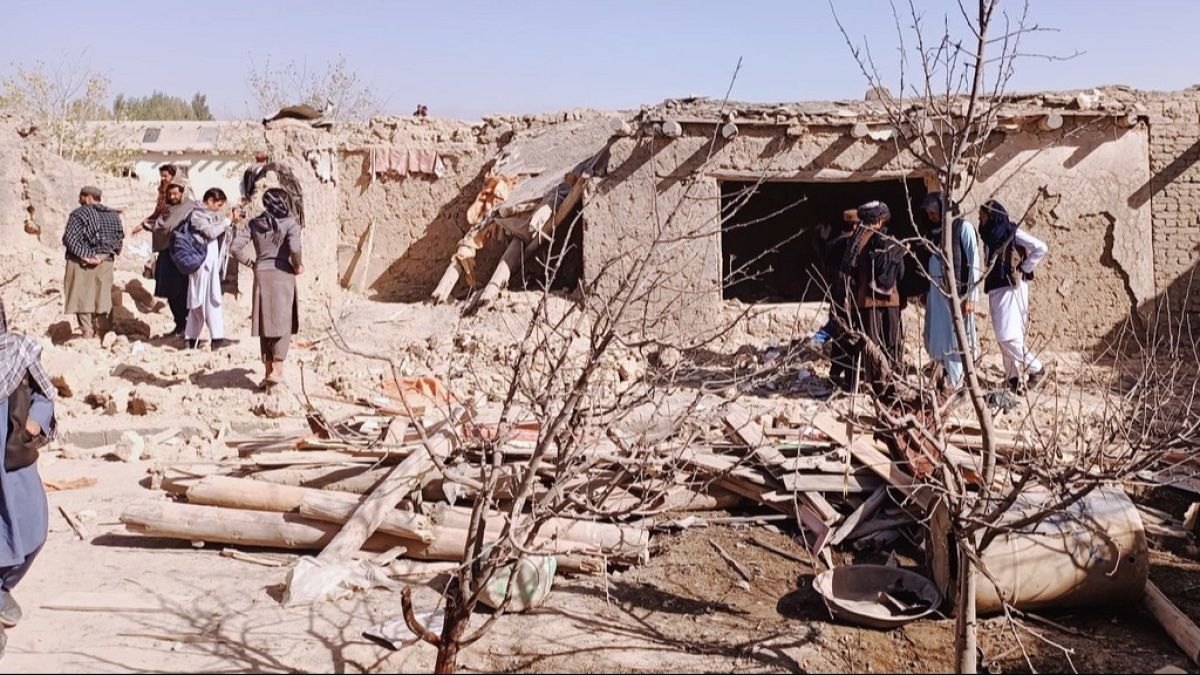According to Qatar’s Ministry of Foreign Affairs, Afghanistan and Pakistan agreed to an immediate ceasefire after meeting with Qatari mediators in Doha.
The agreement marks an end to cross-border fighting, the worst crisis between the two countries in years, which has left dozens dead and hundreds more injured.
According to a statement from Qatar, the two countries agreed to establish a mechanism to strengthen lasting peace and stability and to hold follow-up talks in the coming days to ensure the sustainability of the ceasefire agreement.
The statement added that Turkish negotiators also helped broker the deal.
Violence has escalated between neighboring countries since the beginning of this month, with each country saying it was responding to aggression from the other side. Afghanistan denies harboring militants carrying out attacks in border areas, a key area of concern for Islamabad.
Pakistan has been dealing with a surge in fighters in its western border region with Afghanistan since 2021 after the Taliban took control and returned to power in the country.
Fighting threatens to further destabilize areas where groups such as the Islamic State and al-Qaeda are attempting to re-emerge.
On Friday, just hours after the end of a 48-hour ceasefire, Pakistan launched a cross-border attack targeting militants belonging to the Hafiz Gul Bahadur group in Afghanistan’s eastern Paktika province.
Islamabad claimed that dozens of armed fighters were neutralized and no civilians were killed in attacks on at least two districts in Afghan province.
Officials added that the airstrike was carried out in response to a suicide attack on a security forces facility in Mir Ali, in Pakistan’s western Khyber Pakhtankhwa province, the day before.
But Taliban officials say the airstrike killed at least 10 civilians, including women, children and a local cricket player who was playing a match in the immediate vicinity of the targeted area.
The attack prompted the National Cricket Board to boycott the tournament scheduled in Pakistan. Cricket’s world governing body, the International Cricket Council, said it was “saddened and appalled by the tragic deaths of three young and promising Afghan players.”
Zabihullah Mujahid, the Taliban’s chief government spokesperson, earlier criticized the “repeated crimes committed by the Pakistani military and violations of Afghanistan’s sovereignty.”
Such actions are considered provocative and a “deliberate attempt” to prolong the conflict, he added.
Pakistan’s army chief Asim Munir urged Afghans to choose “mutual security over constant violence and progress over hardline obscurity.”
“The Taliban must rein in their proxies who have sanctuary in Afghanistan,” he told an audience at the Pakistan Military Academy in Kakul, Khyber Pakhtunkhwa province, as high-level delegations from both countries met in the Qatari capital on Saturday for negotiations.
The two countries share a border of more than 2,600 kilometers (2,600 km) known as the Durand Line, which Afghanistan does not recognize, viewing it as a historical issue imposed during British colonial rule, even though it actually functions as a de facto border.
Kabul rejects the border, which was imposed by force in 1893 and separates the Pashtun tribes of western Pakistan and eastern Afghanistan.
Instead, it recognizes Pakistan’s contested 1947 borders over vast tracts of land, resulting in decades of various cross-border skirmishes over control and territorial disputes led by local extremist groups.
Additional sources of information • AP








